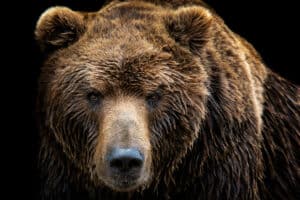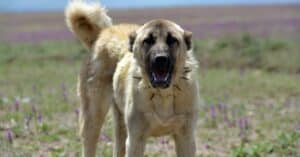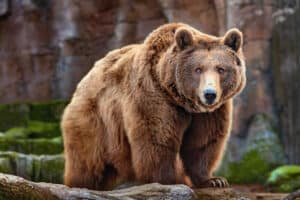Continue reading for our analysis...
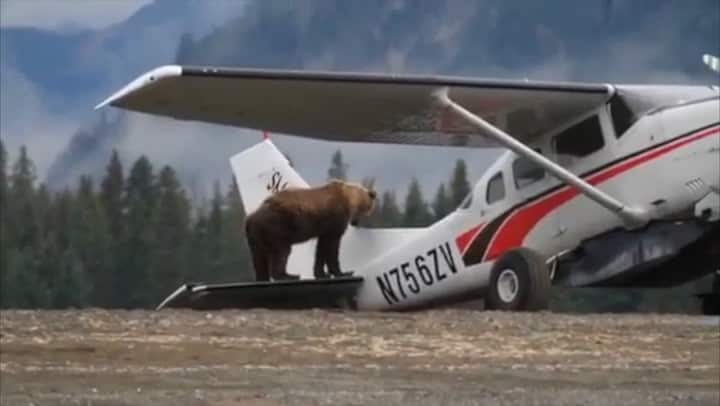
Have you ever wondered what it would be like to fly with a bear? Well, some lucky (or unlucky) travelers in Alaska got to find out when they witnessed a massive grizzly bear climb onto their plane!
A passenger captured the incredible scene on video and shared it online for the world to see. The video shows the group of soon-to-be-flyers trying to board their small aircraft on a beach in Lake Clark National Park in southwestern Alaska. But as they approach the plane, they notice that they have an unexpected guest – a curious bear!
The bear seems to have taken a liking to the plane. It decides to explore it by climbing on the rear wings of the aircraft, threatening to break them. The passengers could only watch as the bear made its way to the roof of the plane and looked around, seemingly enjoying the view!

We don’t know what sparked the bear’s interest in the plane, but it may have been attracted by some food left inside by the previous travelers. Or maybe it just wanted to fulfill its dream of flying. Whatever the reason, it didn’t look like anyone got hurt, and the bear eventually got off the plane after satisfying its curiosity.
While the bear doesn’t travel in the air, it is funny to know that it was close to happening. You never know when a bear might decide to join you for a ride!
Why Are Bears So Curious?
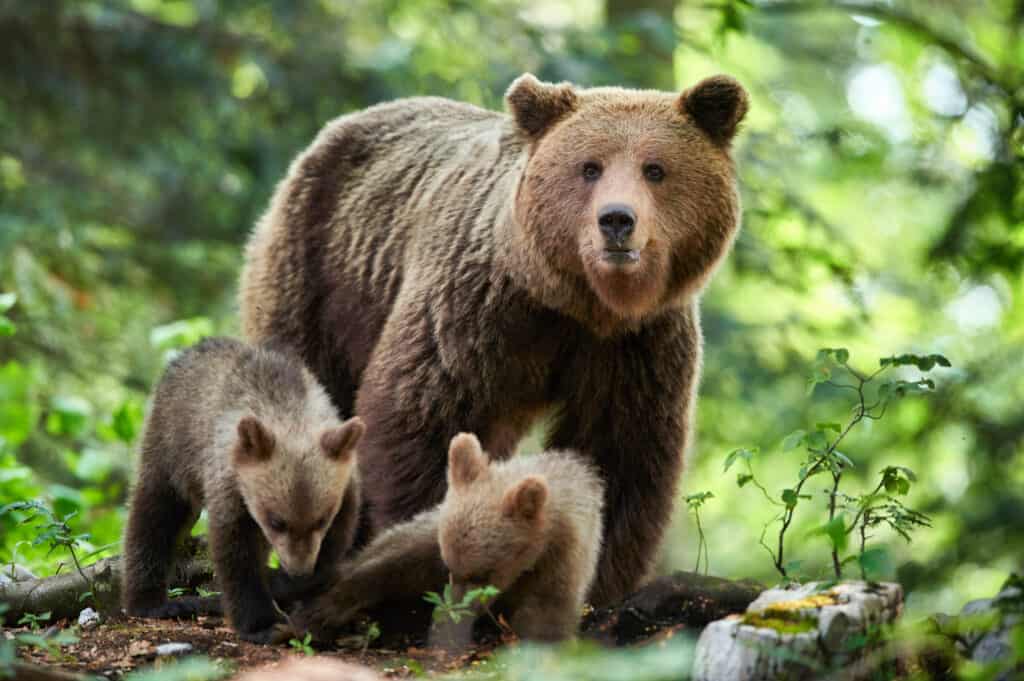
Bears look for food throughout the day and rest at night.
©Piotr Krzeslak/Shutterstock.com
Grizzly bears are among the largest species of bear in the world, but one thing is common across most species of bear worldwide: they are curious! Part of the reason bears are so curious is that they are extremely intelligent. When you are smart, things that are new or engaging are worth checking out for the stimulation itself, just like how humans will sometimes do.
Another important thing to remember is that bears are at the top of the food chain, no matter where they live, PLUS they are always foraging for food. Combined, this means that if a bear thinks that a new place or thing will lead it to food, it has no worries about exploration because they know they are the biggest and worst around. When you’re hungry AND unafraid, curiosity has no bounds!
How Big Are Grizzlies Compared to Other Bears?
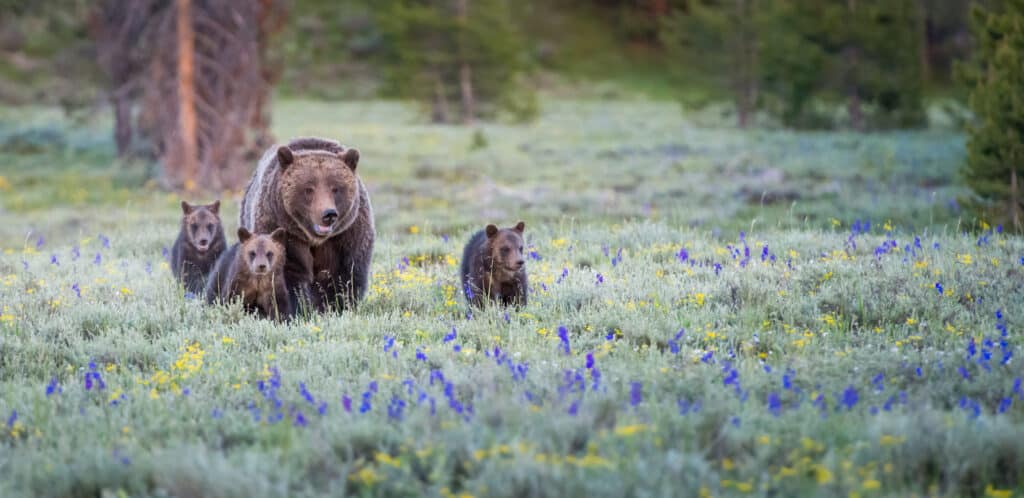
Did you know that grizzly bears only weigh one pound when they are born?
©iStock.com/Jillian Cooper
The grizzly bear is one of the largest land-dwelling animals in North America. An average grizzly bear can weigh up to 500 pounds and stand up to 8 feet tall when on its hind legs. However, not all bears are as large as the grizzly.
Black bears, which are the most common type of bear in North America, are much smaller than grizzlies. An adult black bear can weigh anywhere from 100 to 400 pounds and stand up to 6 feet tall on its hind legs. Polar bears, which are the largest species of bear, can weigh up to 1,500 pounds and reach a height of 9 feet when standing.
In comparison to the grizzly bear, the smaller black and polar bears are much lighter and shorter. However, despite their size differences, all three types of bears are still considered to be among the largest land mammals in the world.
Thank you for reading! Have some feedback for us? Contact the AZ Animals editorial team.




